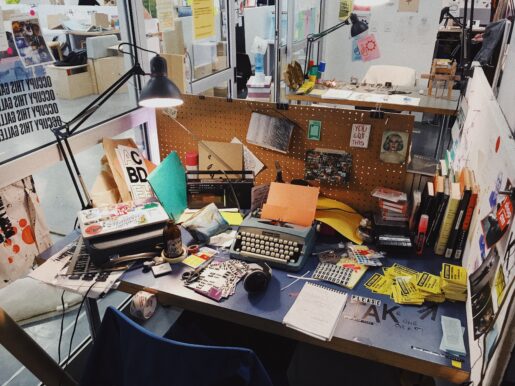An Ecology of Learning and Growth | The DESIS Lab
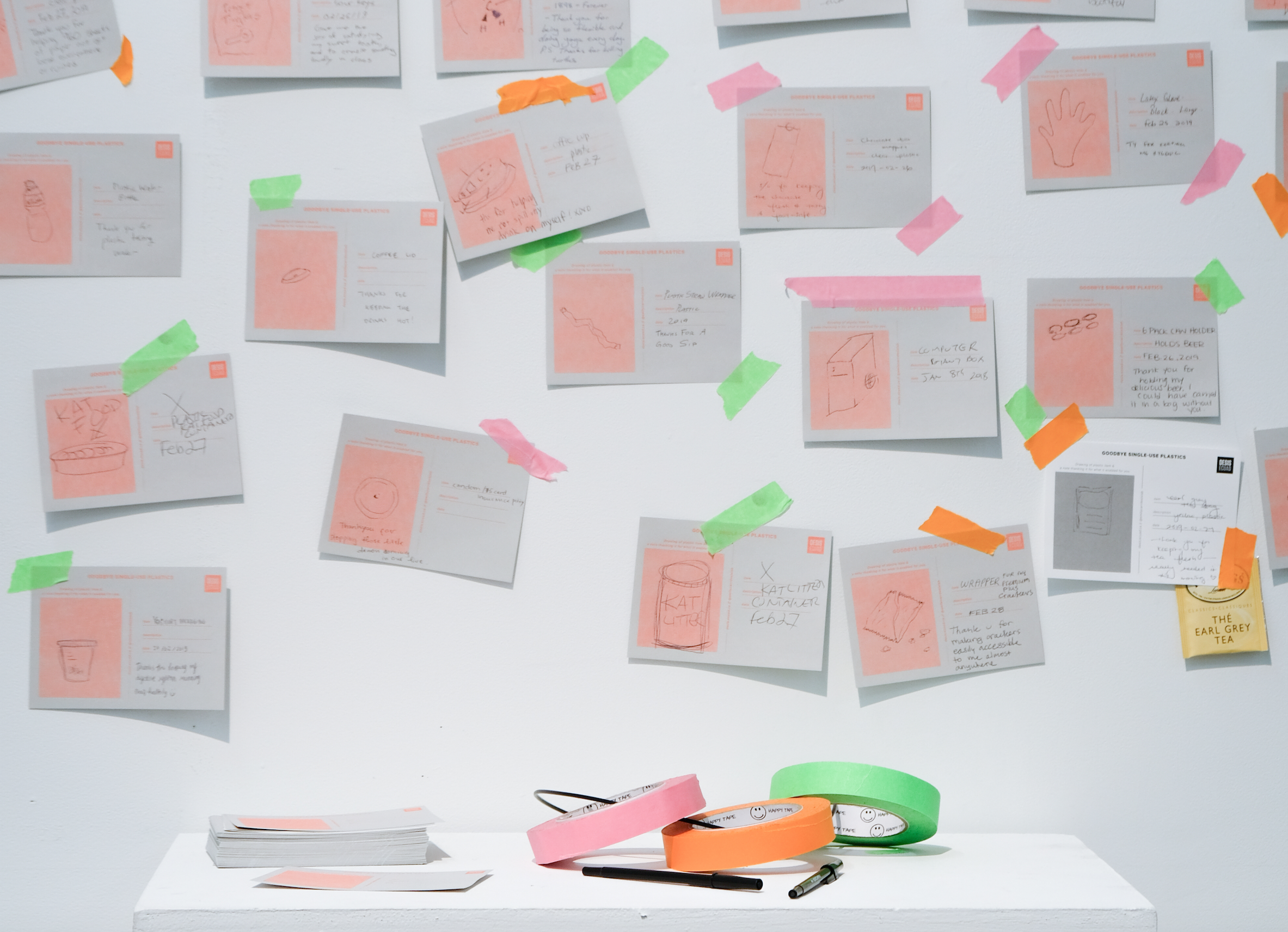
Posted on | Updated
A unique research community at Emily Carr uses social innovation to drive sustainable change.
On Level 3 of Emily Carr is a wall covered in paper. On each sheet is an article about the latest endangered species, crumbling ecosystem, or act of environmental destruction.
The so-called “Daily Bad Wall” is just one of many initiatives from the Design for Environmental Sustainability and Social Innovation (DESIS) Labs. Others include a storytelling research project exploring refugee experiences, a multiphase inquiry into the coast’s declining rockfish population and a series of “unmaking” workshops that experiments with how powerless we feel about our digital technologies.
If these projects seem eclectic, it’s because they are. Each of these unique initiatives is the brainchild of a different member of the lab—the product of a different creative vision.
Fostering a diversity of research directions is a core part of DESIS’s methodology. Rather than assigning lab members to various projects, the lab takes a nonhierarchical, bottom-up approach to developing research questions. Students and faculty are encouraged to bring their own ideas to the table. If their proposed project aligns with DESIS’s values, the lab will provide the support and resources needed to make it happen.
“It’s open door. If somebody wants to join us, just let us know,” explains Louise St. Pierre, an Associate Professor at ECU and the Coordinator of the DESIS Lab. “It creates this ecology of learning and growth—a really nice dynamic.”
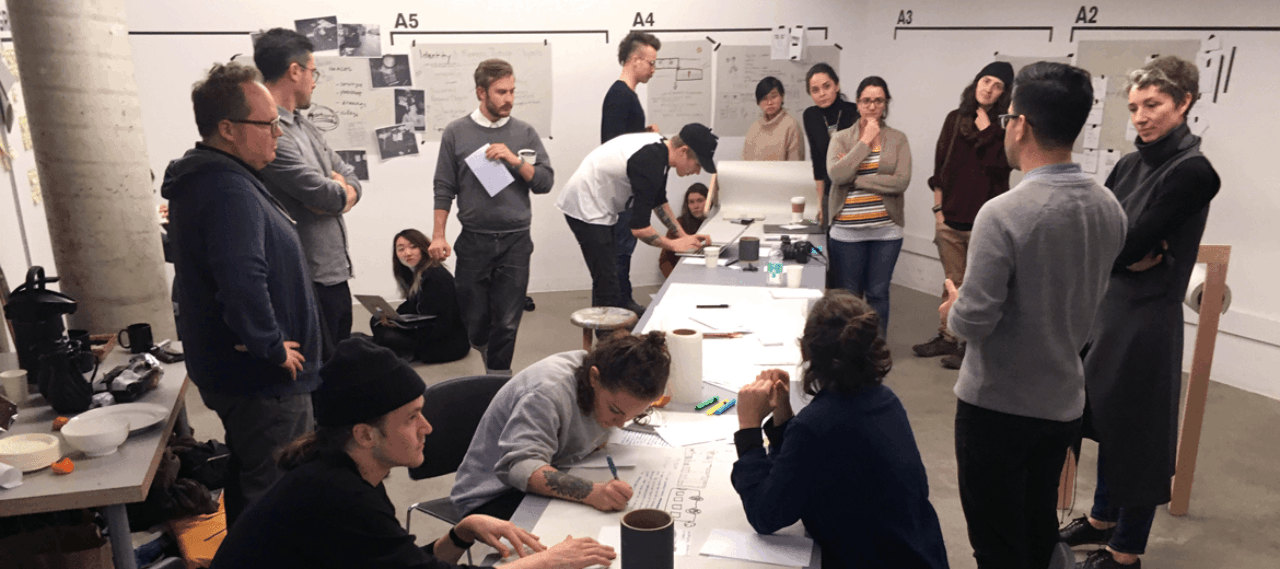
Unfinished Stories Workshop
An international network of innovative design researchers
Emily Carr’s DESIS Lab is one of 50 in the international DESIS network. Formed in 2009, the network views social innovation as a powerful driver towards sustainable change—and design schools as pivotal players in pushing that change forward. Through partnerships with top universities around the world, DESIS strives to develop more “socially relevant scenarios, solutions and communication programs” through design thinking and knowledge.
“Having a DESIS [here] is pretty amazing,” says Amanda Huynh, a sessional faculty at ECU and a member of the lab’s steering committee. “We’re the only one in Canada.”
Having access to the larger DESIS network allows the lab to amplify its impact on a major scale. Many ECU-born projects gain global reach through DESIS’s interconnected, collaborative model.
“It enables all of the things that we are publishing to be shared with the network,” says Hélène Day Fraser, an Associate Professor at ECU and founding member of the lab. “That brings a lot to the community.”

Crowdsourced Constitution | engaging with the public to discuss priorities for the Canadian constitution outside the Vancouver Art Gallery
Sparking conversations about sustainability and social change
Although the lab’s projects are diverse, they share a common mission: to create space for conversation and connection.
“Community building is one of the central ideas behind DESIS,” Louise says. “If you get communities talking... they can start questioning the status quo. They can become motivated to become democratic.”
Many of the sustainability issues we face today are also social issues, she explains. For this reason, the lab sees fostering personal connections as essential to its mission. Of course, banning plastic straws or introducing biodegradable packaging could help in the short term. But real progress, she explains, will require a profound shift in how we lead our daily lives. For a city to truly achieve zero-waste status, it needs to become socially acceptable to carry your groceries out the store in a fumbling, bagless embrace.
DESIS believes design research can play a key role in achieving that shift. “A designer can set up tangible spaces for a conversation,” Louise says, “spaces of helping people to see that something is very, very possible.”
To create those spaces, DESIS uses a variety of research methods and pedagogical techniques, including participatory toolkits, storytelling and ‘heuristic,’ or experience-based, inquiries. “The heart of it all is participant engagement,” she says. “To engage citizens in the discovery and discussion of possibilities.”
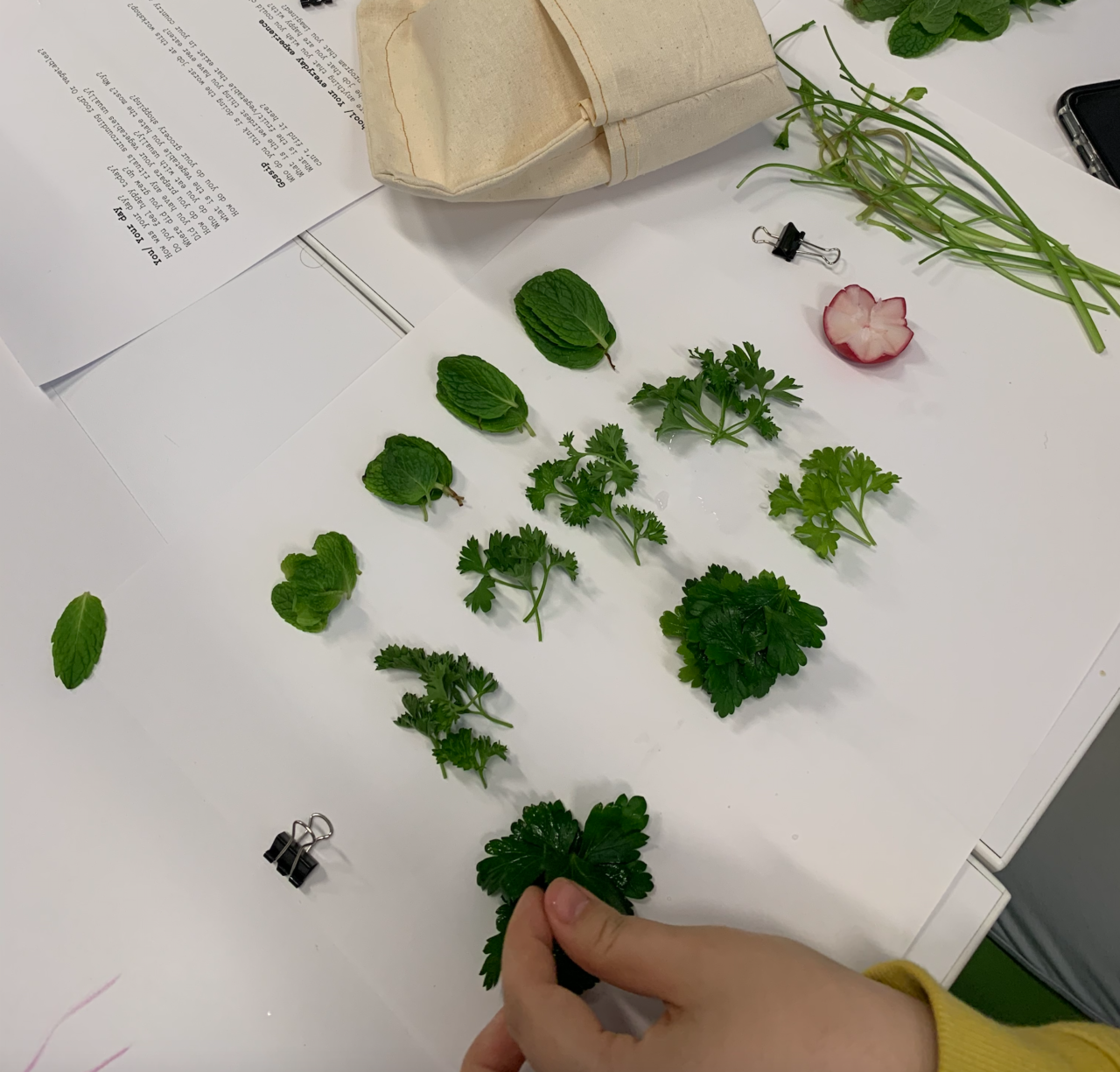
Vegetable Talk Workshop | Conversations that happen while we prepare the herbs together
Reimagining plastic waste as a collective “we” problem
This engagement-focused approach is exemplified in Single-use Plastics Research (SUPR)—one of the lab’s core research projects. This interdisciplinary initiative examines the social implications of single-use plastics through research, creative exploration, events, documentary productions, and more.
Like many of DESIS’s work, SUPR grew out of a small, student-directed project. Spearheaded by Master of Design student Reyhan Yazdani, the first iteration of the project explored how food can connect people within and across cultures. It culminated in a recent workshop titled “Vegetable Talk,” which invited community members to prepare vegetables for a meal together. By encouraging people to slow down and put away their electronic devices, Reyhan says, the workshop enabled participants to come together and “enjoy the stillness of an hour of conversation” with those around them.
The project took on a new form when it entered the classroom, in a course Amanda was teaching about food and race. For the end-of-term project, five students created a zine about food packaging—the largest source of waste on the Emily Carr University campus.
Their work struck a chord with the community. “Over the next few months, so many people reached out to them,” Amanda recalls. “A professor, a dean, some of the administrative staff, as well as the food service provider, Loafe.” All of them were asking the same question: “What can we do?”
Eventually, that class assignment evolved into a week-long exhibition in the university’s main concourse. Three of the students—Kaylene Johnstone, Maddy Phillips and Keely Bruce—took on all of the planning and implementation, with guidance from Amanda. Seventeen artists from across ECU’s faculty contributed work, using materials such as discarded coffee cup lids, reusable mugs and repurposed file folders.
The students also performed a live “creative audit” of all of the waste produced at the university in a regular, 24-hour cycle. Starting with 130 garbage bags, they spent the entire day sorting: composting, recycling, and repurposing as much of the “waste” as they could. By the time they were done, they’d redirected or diverted all but three bags of garbage.
Reflecting on the Show, Amanda says, “It was core DESIS for me—to open up a larger discussion, and to approach it as a collective ‘we’ problem.”
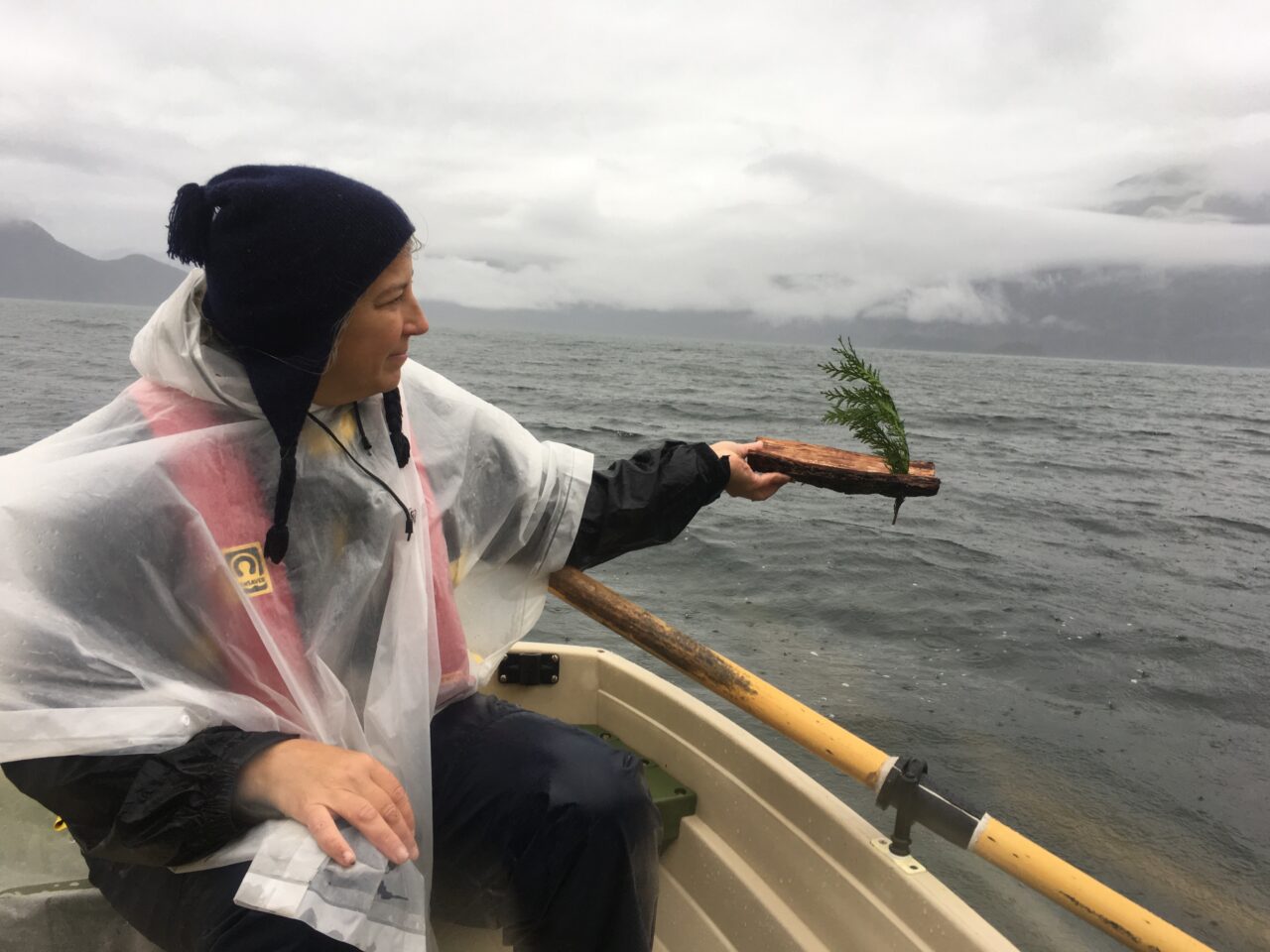
Rockfish Research Project | A coastal exploration in designing for more than humans
Working toward a more connected, sustainable future
DESIS hopes to generate more of these discussions as it looks toward the future. This summer, Hélène and MDes candidate Andrew Simon will attend the international DESIS forum in Finland to discuss how universities can collaborate with neighbouring communities.
In the fall, the lab will host a series of Philosophy Talks—small, café-style breakout conversations that push students to ask questions about the methodologies, ethics, and impacts of their design practices. MDes candidate Jean Chisholm hopes to run a DESIS reading group, and the lab plans to facilitate more student-led workshops, events and community collaborations in coming months. Several projects, like the rockfish project and the storytelling workshop research, are ongoing, and will publish their work soon.
Whatever direction these new projects take DESIS, the lab is excited to continue growing and exploring. “It used to be just a few people,” Louise says, thinking back on the early years of DESIS, when she and Hélène had just founded the lab, “but then others started realizing what interesting conversations we were having.” She smiles, gesturing to the wooden table where the team holds most of its meetings. “Now, we can’t fit all of the people who are interested in being part of the lab around this table.”
Story by Alice Fleerackers
